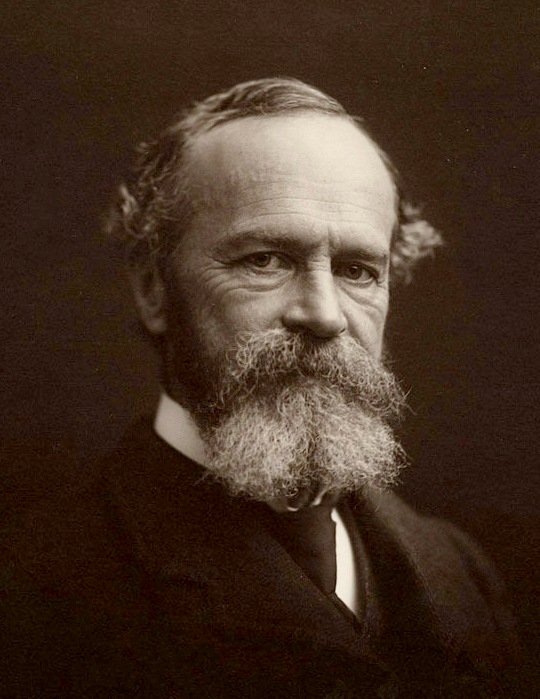To be able to understand functionalism in psychology its necessary to first look at structuralism. Both schools of thought developed in the early stages of psychology when it first became a recognized science on its own and not just part of biology and philosophy.
Wilhelm Wundt and Structuralism
In 1879, Wilhelm Wundt, a German physician, philosopher, physiologist, and professor created the first school of psychology. Although it was his student, Edward B Titchener, who first coined the term structuralism, Wundt is credited with its creation.
Wundt believed that mental processes and consciousness could be broken down into separate components in much the same way that physical objects can be broken down.
However, the experiments he conducted to prove his theory are no longer considered to be accurate and structuralism as it first appeared, no longer exists in psychology.
Wundt believed that by studying the conscious thoughts of a person, you would learn how their mental processes worked.
Titchener expanded on these theories by stating that consciousness was how a person’s mental processes worked at any given moment, and that the mind was the mental processes caused by a person’s total lifetime experiences.
The main criticism against structuralism is that it relies on the internal processes of subjects which makes it difficult to measure. Titchener believed that if he could learn what each element of the mind was, then he could study their interaction which would help him to understand consciousness on a high level.
William James and Functionalism

In the early 1890, William James published his book, The Principles of Psychology. William James was clearly influenced by Charles Darwin’s theory of evolution and he believed that consciousness and mental process were more systemic than structuralists believed.
His theory stated that people’s mental processes and behavior were dictated by how they adapted to their environment. So, instead of concentrating on the different parts of the mind, it concentrated on how the mind adapted to change in its environment or situations.
Modelled on Darwin’s theory of evolution by natural selection or the survival of the fittest, functionalism worked on the notion that the brain evolves in an effort to further survival. In that way, if a brain function or process didn’t serve a purpose, it would be naturally eliminated in the next generation or two.
The Four Main Concepts of Functionalism

First mentioned in his book, The Principles of Psychology, James described four concepts he believed were the basis of his theory of functionalism. These were stream of consciousness, emotion, habit, and will. He goes on to explain instinct as physical senses sending messages to the center of the brain, to initiate behavior.
- Stream of
consciousness. At the time James published his book, it was believed that consciousness was a series of experiences much like a chain is linked together, one after the other. James believed that consciousness was not a chain, but worked as a stream, constantly moving forward. Because of this a person couldn’t have the same thought or idea more than once in a lifetime. - Emotion. James developed the James-Lange theory of emotion which stated that emotion is a response to a bodily experience and not a reaction to a stimulant triggering the bodily experience. Up until then, the predominant theory was that emotion triggered the physical response.
- Habit. James theorized that habits were formed by actions that came about because desire or want. Habits could be good or bad and allowed the mind to focus on achieving a goal or outcome.
- Free Will. To James, free will was the ability to stay firm in belief or opinions, even in the face of disputing evidence. At the time, many people believed that free will did not exist because people were always swayed by their environment, or social, political, and religious constraints.
Pragmatism in Functionalism
William James was a psychologist who had a firm belief in the philosophy of pragmatism. This is the belief that only practical matters should be pursued and if something is not going to further progress it should be abandoned as frivolous. James applied this pragmatism to the development of functionalism.
Other Important Figures in Functional Psychology

William James was not the only person who believed in functionalism as a psychological concept.
John Dewey
John Dewey was a philosopher and pragmatist who believed that students learnt through doing rather than just listening or reading. It was partly due to his influence that experimental research developed which has been so crucial to modern day psychology.
Dewey was a prolific writer who published books on many different topics including education, philosophy, religion, culture, art, ethics, nature and democracy. He also held a strong belief that separating students from their psychological supports such as family inhibited learning. He felt that a child’s schooling should not be separate from their home life and that schools should also teach social and life skills.
James Rowland Angell
James Angell was a student of John Dewey at the University of Michigan and he also worked with William James at Harvard. He became a professor of Psychology at the University of Chicago, again with John Dewey and helped to train many functional psychologists. He moved on to become the President of Yale University and helped to establish the Institute of Human Relations there.
Angell published his book Psychology: An Introductory Study of Structure and Functions of Human Consciousness in 1904. In 1906, he gave a speech at the American Psychological Association and voiced his opinion on three major points.
- Angell stated that functionalism was the study of mental operations and not mental elements as structuralism was.
- Functionalism views consciousness as the result of a combination of the persons needs and the stressors of their environment.
- Functionalism views the body and mind as inseparable and one cannot function effectively without the other.
Harvey A Carr
Harvey Carr was good friends with James Angell and worked with John Dewey at the University of Chicago.
Carr worked primarily in experimental psychology and his focus was on the concepts of learning, the mind, and consciousness. He was also known for asking questions particularly on topics that were assumed to be true by others.
Carr referred to functionalism as the American Psychology and he believed psychology was defined by mental activity. He spent several years as the Chairman of the University of Chicago’s psychology program and as such trained many notable psychologists.
He was also editor for the Journal of Experimental Psychology and the Journal of General Psychology.
The Strengths and Weaknesses of Functionalism in Psychology
As we mentioned, the concept of structuralism is no longer practiced in psychology and functionalism has evolved into applied psychology and behaviorism that are still relevant. Functionalism has also been an influence on how our children are taught in our schools. The problem with functionalism was again, that it was difficult to measure and didn’t consider human behavior that does not appear to have any systemic origin.
The Influence of Functionalism Psychology on Behavioral Psychology
Behavioral psychology would not have developed if it wasn’t for the influence of structuralism and then functionalism. The work of William James and the others paved the way for the psychology that is practiced today.
Behavioral psychology, or behaviorism, has followed on from John Dewey’s beliefs that people learn through doing and is the branch of psychology that focuses on classical and operant conditioning. These are the processes of teaching through rewards and punishment and the theory originally came to be known by Ivan Pavlov’s work with his dogs.

Behaviorism became to received recognition after the publication of Psychology as the Behaviorist Views It by John B Watson, in 1919. Watson had been supervised in his early career by James Angell when he was president of the American Psychologists Association.
As others had done before him, Watson took functionalism and developed it even further although his methods weren’t always as ethical as they could have been. He was perhaps more famous for the Little Albert experiment when he and his assistant taught a small boy to be afraid of a white rat. They then went on to prove that this fear could also be transferred to any white, fluffy, object. This kind of experiment simply would not be conducted today.
There’s no doubt that although functionalism in psychology and structuralism were once the forerunners of today’s psychological practice, their methods of experimentation and the findings do not hold up well in today’s moral climate.


